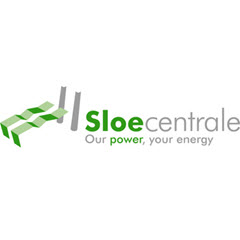Term Sync provides a big advantage because our employees, suppliers, and contractors can find relevant documents since our KKS codes can now be synchronized with Managed Metadata.
The Client
Sloecentrale is a state-of-the-art, gas-fired power plant that supplies electricity to industrial customers and private households. The power plant generates about 870 megawatts—which is equivalent to the electricity used by two million households—and is more efficient than traditional power plants, enabling it to obtain maximum energy from the generating process. Sloecentrale is a joint venture of the French energy company EDF and DELTA, the fourth largest utility company in the Netherlands.
The Challenge
KKS (Kraftwerk Kennzeichnen System) is the classification system power stations like Sloecentrale use to identify plant assets. This includes sections of plants and items of equipment in any type of power station according to task, type, and location. Sloecentrale planned to migrate from SharePoint 2010 to 2013. The company’s requirements included being able to connect metadata to the KKS environment, which involved some 36,000 codes. The challenge Application Engineer Ronald Caljouw faced was (1) connecting metadata with scores of external technical documents and (2) making them easy for users to find.
The Solution
Caljouw discovered Term Sync (Managed Metadata Term Store Sync for SharePoint) by PremierPoint Solutions while doing an Internet search for a solution. Term Sync is a software add-on that provides a link from external line-of-business data to SharePoint’s Managed Metadata Term Store (a link which is missing in SharePoint out of the box), making it possible for external data to be used as metadata in SharePoint lists, documents, and pages. Term Sync then keeps the external data in sync, updating SharePoint when terms are added or modified.
By using Term Sync to connect metadata with technical documents, Sloecentrale has been able to provide users with more meaningful search results and more efficient findability.
“It’s a big advantage because our employees, suppliers, and contractors can find relevant documents with KKS codes,” he says, noting that Term Sync is a much more convenient way to look for data. “For me the main advantage is that once synced, users can just type in the data they want. When you have managed metadata, you can search for that data and users can easily find information.”
Another advantage of Term Sync is that it helps users identify what is lacking, Caljouw says. “If users are looking for KKS code that is missing but needed, it can be quickly updated.”
Had he not utilized Term Sync, Caljouw indicated that Sloecentrale would have had to find an external company to create a solution that included a way to reliability update the metadata with the rapidly changing data. This would have been time-consuming and cost “at least twice as much” as Term Sync, which already has all of that functionality built in.
Caljouw describes PremierPoint Solutions’ customer support for Term Sync as “fabulous,” explaining how the company gave him “an immediate solution” to a licensing issue. He says he would recommend Term Sync to companies in need of a similar solution, noting, “It is a very easy solution to run and implement, and the purpose of it for syncing with managed metadata is ideal.”
